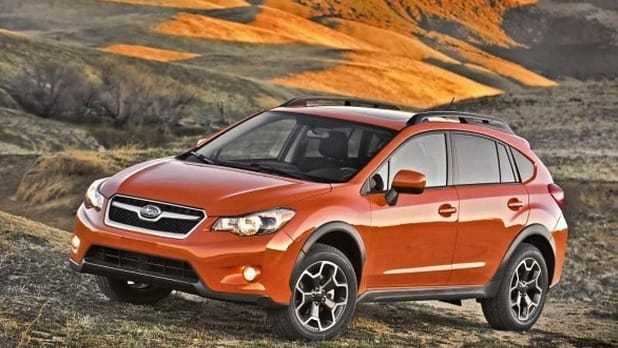Electric car myth: Electric cars are expensive to maintain and use

At Gowago, we don't quite understand why this myth keeps being repeated. Because the maths is pretty simple. An electric car has far fewer moving parts that can break down. No timing belt, no V-belt, no cylinders, no exhaust, no oil that needs changing. As a result, electric cars practically never need to be serviced and require less maintenance due to wear and tear.
I drive an electric car myself and in the last four years I've had to replace the ventilation filter exactly twice and replace the windscreen wiper blades. That's it.
For used electric cars, this means you don't have to worry about upcoming repairs. With a used combustion engine car, you're always a bit nervous: "Hmmm, when do I have to change the timing belt? Is it still worth buying the car now with 100,000 km on the clock? What if the clutch suddenly gives out because the previous owner drove like a maniac?"
There's no such guesswork with a used electric car.
This is how much your combustion engine car would cost to maintain over 150,000 km.
Summary: An electric car is significantly cheaper to maintain than a combustion engine car.
Myth 8: Electric cars are more expensive to run.
In short:
- False. Electric cars are significantly cheaper per kilometre than combustion engine cars.
- Those who charge at home pay less than half the fuel costs on average.
- Maintenance costs are significantly lower: no oil, no exhaust, no V-belt – less that can break down and cost you money.
- Even brakes last longer because recuperation (energy recovery during braking) greatly reduces mechanical braking.
Discover used electric cars from Gowago
Electricity instead of petrol: a cost comparison
Driving an electric car is a real money-saver in Switzerland. While a litre of petrol currently costs around CHF 1.70, you pay an average of only CHF 0.25 for a kilowatt hour of electricity.
An electric car consumes around 15–20 kWh per 100 km. That's only £4–5 for 100 km.
By comparison, a modern petrol car with a consumption of 6 litres per 100 km costs you around £11. This means that even with normal use, you save more than half of your ‘fuel’ costs.
Less servicing, less tax, less hassle
An electric car has far fewer parts that can break down or need regular maintenance:
- No oil changes
- No spark plugs
- No exhaust
- No V-belt
- no complicated gearbox
Let's do the maths. All these parts are never a problem with a used electric car because they don't exist. But with a petrol or diesel car, you'll constantly be faced with repairs, garage visits and costs.
This is how much your combustion engine car would cost to maintain over 150,000 km.
We have put together a rough calculation of how much a petrol or diesel car would cost you over 150,000 km. Of course, these are not exact figures. If you drive a Dacia Sandero, you will pay much less than if you drive a BMW M3. But on average, the following repairs will be necessary:
| Component / Service | How often | Typical cost (CHF) | Comments | Oil change & oil filter | Every 10,000–15,000 km | 150–250 per service | 10× in 150,000 km = approx. 1,500–2,500 |
|---|---|---|---|
| Brake pads and discs | 40,000–60,000 km | 600–1,200 per axle | 2× in 150,000 km |
| Tyre change (set) | Every 40,000 km | 800–1,200 per set | At least 3× |
| Air filter, pollen filter, fuel filter | Annually/30,000 km | 100–300 per service | |
| Clutch (with manual transmission) | 100,000–150,000 km | 1,000–2,500 | Not applicable for automatic transmission |
| Timing belt + water pump | 100,000–120,000 km | 1,000–1,800 | Expensive mandatory maintenance |
| Transmission oil change (automatic) | 60,000–100,000 km | 400–800 | |
| Exhaust, catalytic converter, particulate filter | variable | 1,500–3,000 | often an issue from 120,000 km onwards |
| Glow plugs/spark plugs | 40,000–80,000 km | 200–500 | 2–3× up to 150,000 km |
| Other minor repairs | Ongoing | 1,000–2,000 | Window regulators, sensors, etc. |
Your total budget would therefore be between CHF 10,000 and 15,000 for a petrol car and between CHF 12,000 and 18,000 for a diesel car. Based on an annual mileage of 12,000 km, which is the Swiss average, this would amount to the following per month:
- Petrol: approx. CHF 830 - CHF 1,250 per year
- Diesel: approx. CHF 1,000 - CHF 1,500 per year
The costs naturally depend on the type of car you drive, the brand you choose and how your driving style affects the mechanics. A BMW SUV will exceed these costs. A small Fiat 500 will probably cost you less.
An electric car saves these costs across the board because it has no timing belt, no clutch, no exhaust system, no oil, etc. The main costs are tyres, brakes (which need to be replaced less often due to recuperation), occasional coolant for the battery/drive and parts such as windscreen wiper blades.
That's just crazy: think about what else you could do with that money! That's a week in an all-inclusive hotel in Turkey! Or you could eat out once a week. Or you could finance your new iPhone every year.
An electric car is also cheaper as a used car
If you buy a used car with a diesel or petrol engine, you need to be aware that repairs will be necessary depending on the age of the vehicle. With an electric car, even one with 100,000 km on the clock, you don't have to worry about this.
You also save on road tax in many Swiss cantons with an electric car, as electric cars are exempt from this. You can read more about this in our blog article on Swiss road tax.
Brakes hardly ever need to be replaced on electric cars
As soon as you take your foot off the accelerator, electric cars use their electric motors as generators. This process is called recuperation. It feeds the kinetic energy back into the battery.
Because this creates friction and resistance, the vehicle slows down automatically without you having to press the foot brake. However, the braking effect is exactly the same as with the foot brake in everyday use.
The advantage of this is that the brake discs and pads are massively protected and therefore hardly wear out. Many drivers report that their brake pads and brake discs last twice as long as those in a comparable combustion engine vehicle.
Do you pay road tax with an electric car in Switzerland?
That depends on the canton. Once again, federalism makes the whole thing a bit complicated.
Because the regulation of road traffic taxes in Switzerland is left to the cantons, you pay different rates depending on where you register your electric car. It's the same for petrol and diesel cars: sometimes CO2 emissions are decisive, sometimes engine capacity, sometimes weight or horsepower. Some cantons do not grant any tax concessions at all (boo!).
In these cantons, electric cars are exempt from road tax:
| Electric cars are exempt | Geneva, Glarus, St. Gallen, Solothurn, Zurich | Electric cars partially exempt | Bern, Basel-Landschaft, Basel-Stadt, Fribourg, Graubünden, Neuchâtel, Nidwalden, Obwalden, Thurgau, Ticino, Uri, Vaud, Valais, Zug | Hybrid partial deductions | Glarus, Graubünden, Lucerne, Neuchâtel, Obwalden, St. Gallen, Thurgau, Vaud, Zurich | Electric cars and hybrids are taxed at the normal rate | Aargau, Appenzell Innerrhoden, Appenzell Ausserrhoden, Jura, Schaffhausen, Schwyz |
Summary: An electric car is significantly cheaper to maintain than a combustion engine car.
Electric cars are not only cheaper to charge. They also save you hundreds of pounds a year in maintenance and servicing. You can then use that money for other things. Instead of investing thousands in repairs, you can afford a nicer hotel for your next holiday. Clever.
Let's debunk the other myths! Let's Go.
That was just one of many myths surrounding used electric cars.
There are a few other preconceptions that persist – but have little to do with the facts. Discover the other myths now and find out why a used electric car is often the better choice.
To the overview of electric car myths


